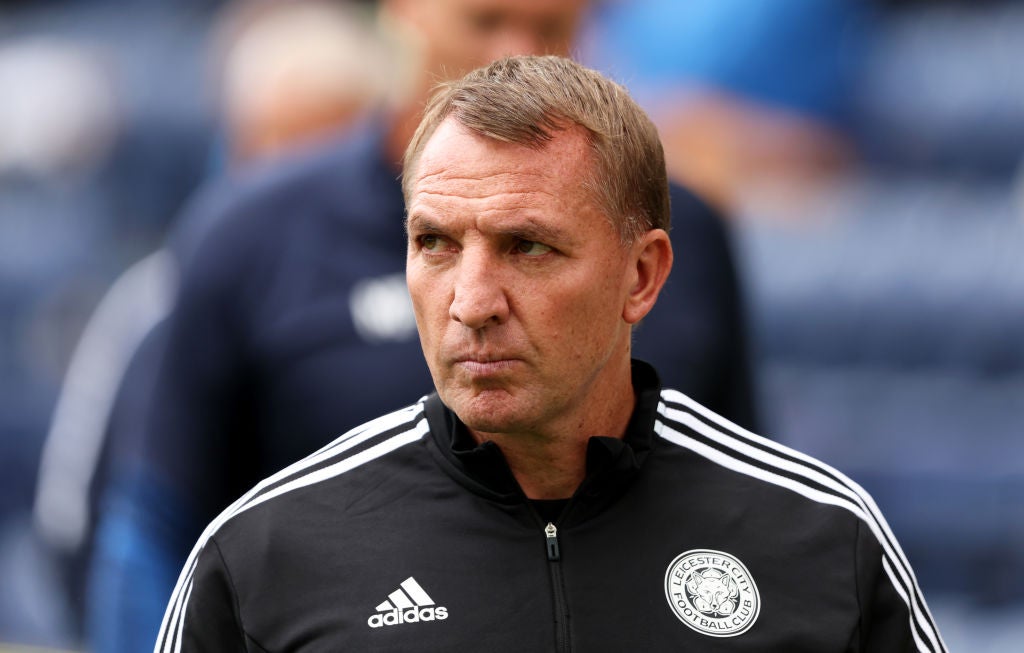Inside Brendan Rodgers’ exit from Leicester - and the warning for the Premier League
Rodgers’ ambition met reality as the Premier League’s ‘model club’ lost its edge and spiralled towards the relegation zone
It was when the Leicester City hierarchy noticed a new disconnect between Brendan Rodgers and his players on the training ground this week that they decided results on the pitch could no longer be tolerated. The realisation was the club’s run was not getting better, and they had to act to save their Premier League status.
If that would appear to suggest the Northern Irishman has reached a ceiling as a coach, it really says much more about the potential of such clubs in the competition. It is also a warning. The widespread expectation, after all, was that Rodgers himself was going to seek to leave in the summer.
Leicester are the latest in a series of well-run Premier League “model clubs” - following Swansea City, Southampton and West Brom - to find they couldn’t keep the idea going indefinitely. Ambition ultimately came up against financial reality, and there are few managers as personally ambitious as Rodgers, or few competitions as economically exacting as the Premier League.
Leicester were the most overachieving “model” club of all. That is down to more than the miracle 2015-16 title, which has been mistakenly used to laud the competitiveness of the Premier League. It was a miracle precisely because the division is so dictated by finances, and was from a series of factors entirely separate from what followed. The real genius was in Leicester initially using that historic success as a launchpad to become one of the most forward-thinking clubs in the game.
Rodgers for a long time seemed the ideal manager for that, a perfect combination. Long is the right word, given his four-plus years makes him one of the longest serving managers in the modern Premier League, as well as in Leicester’s history. He is also one of the most successful, taking them to their second and third highest finishes, and a long-awaited first FA Cup in 2021.
That all came from a progressive and sophisticated tactical approach that supremely fitted Leicester’s willingness to bring through the brightest talent. It almost seemed like alchemy that they could so often sell burgeoning stars for big money and already have them replaced twice over and two steps down the line. The ultimate example of that was how they found a fine centre-half pairing in Jonny Evans and Caglar Soyuncu, ready-made, once Harry Maguire was sold. The other side was how the departure of Wesley Fofana indicated they were no longer that club. Industry figures talk of how their recruitment just hasn’t been anywhere near what it was, for the last two years.
As similar clubs like Southampton have found, though, no one - no matter how well run - can keep doing it indefinitely. Constantly losing top talent and needing to get the recruitment right to regenerate eventually has an effect, especially when tactics are as finely tuned as Rodgers’. This is something that had been noted within Leicester the last season and a half. The synchronicity that had been seen for Rodgers’ first two seasons was gone. It didn’t help that Jamie Vardy had inevitably lost his sharpness, or that his relationship with the manager was no longer as warm as it had been given the striker’s legendary status at the club. Leicester gradually became a soft touch, easy to get at and to keep out.

They had lost their edge, as happens to all such clubs. That’s a Premier League reality.
It was made much worse by greater realities. Those with knowledge of how the club works talk of a “funding fatigue”, especially as Saudi Arabia took over Newcastle United and took Leicester’s place as the next club outside the “big six”. The owners meanwhile felt mounting costs from losses in other business due to Covid.
The same investment couldn’t be there, which only hastened the decline in recruitment. Many around the club meanwhile talk of how it hastened a decline in the Rodgers’ project. He could see the same potential wasn’t there. It led to that training-ground disconnect. The brightness of his ideas were now met with a staleness, with results then naturally seeing the more debated elements of Rodgers’ man-management irritating players who wouldn’t have previously cared. Rodgers is now a long way from the mantra-repeating figure pilloried earlier in his career, but his ambition can still rub up some the wrong way.
The most relevant point, however, is that his ambition could no longer be met by Leicester.

This had run its course, in so many senses. Leicester now need to ensure their Premier League tenure doesn’t run its course. Their immediate future is arguably less assured than Rodgers’ in that way.
His career may not be on the trajectory it had seemed but a number of Premier League clubs will be interested. Crystal Palace would seem as ideal for the next stop. Tottenham Hotspur would almost seem perfect, except for existing tensions with Daniel Levy. They can be resolved. Rodgers’ record should be persuasive enough, not least at Leicester.
The main lesson of this story is how the Premier League’s model club instead became another example of the competition’s punishing financial realities.
Join our commenting forum
Join thought-provoking conversations, follow other Independent readers and see their replies
Comments


Bookmark popover
Removed from bookmarks